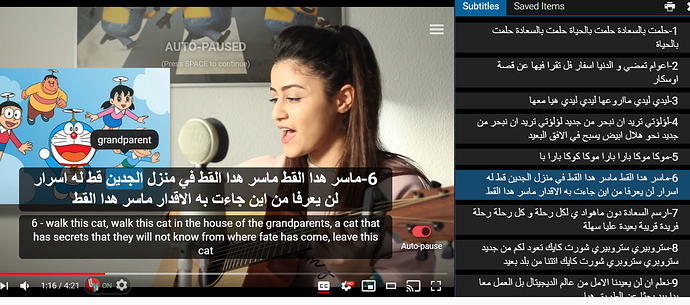Hi. Do you have a link for the video that doesn’t work? I tried an Arabic video, this one seems ok:
There’s no technical reason why Arabic shouldn’t work, but, there’s a lot that can go wrong when you are bolting on stuff to somebody else’s website. Huh. This extension isn’t bad actually… I can study Arabic finally without having to try to read news articles.
You’re right, we only use the machine translations, not ‘human translations’… this is a todo, the code is still there and can be hooked up, but I didn’t think it’s a high priority, most yt videos only have subtitles in the original language, if at all… depends what part of Youtube you are watching of course.
drag and change the placement - yeah, Og mentioned doing that, I think it’s quick. We made the subs a bit transparent a couple of days ago. I would like to bring back the “bottom panel” option (that’s what we call it) from the Netflix version to Youtube, when in fullscreen, so subs are not over the video at all.
stats - probably we’ll look at this after we have word frequency stuff working again.
hovering over the transcript - yes, I think you are right. Pause on hover was hacked on quickly, the logic needs improving.
Thanks for helpful suggestions, I’ll get Og to look these over too.

